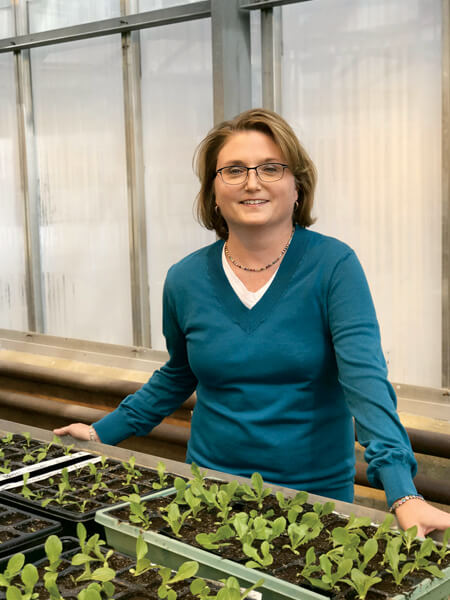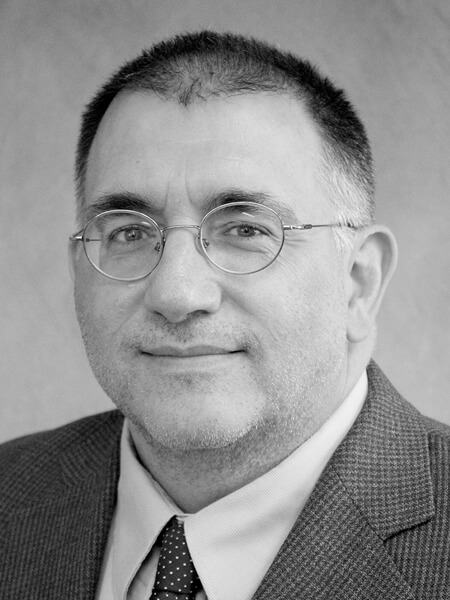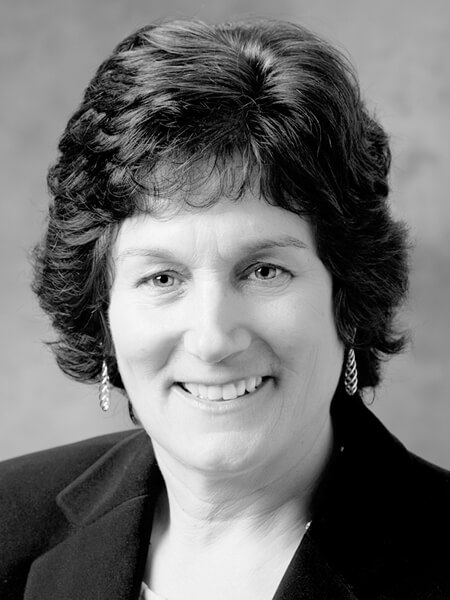An agriculture-related project at Purdue strives to create an open source framework and community for sharing data and algorithms. Ultimately, the goal is to improve sustainable food and agricultural systems to help feed the growing world population.
The work is led by a core of 19 Purdue researchers from diverse backgrounds, academic units and research interests. The team is organized into three sub-teams: engineering, software and computing, and food and agronomy.
The project launched the Open Ag Technology and Systems (OATS) Center at Purdue, says James V. Krogmeier, co-director of the center, associate head, and professor of electrical and computer engineering.
The three-year project, which began in January 2018, is funded by the Foundation for Food and Agriculture Research and key industry partners, including Winfield United, Centricity, Infosys, Ag Gateway, ADM, CNH Industrial, and Dapicon, Inc., with cost sharing contributed by Purdue and industry.
Providing open source data could boost promising avenues for sustainable food and agricultural systems involving advanced applications, including sensing, networking, big data science, visualization and analytics.
Researchers will work to improve the performance of networks linking crop-production machinery through better use of data. While large amounts of agricultural data are being collected, farm machinery cannot seamlessly share data for decision-making or research at a watershed level.
“The grand challenge is to leverage these thousands of terabytes of practically inaccessible data to feed 9.7 billion people by improving crop productivity and farmer profitability while using less land, water and energy,” Krogmeier says. “Our goal is to accelerate innovation for sustainability by bringing the power of collaborative open source culture and tools to agriculture.”
Dennis Buckmaster, OATS Center co-director, Dean’s Fellow for Digital Agriculture, and professor of agriculture and biological engineering, says the digital nature of the ag-food system from this point forward is clear. “This center’s activities, in addition to the research and outreach, will facilitate better graduates in the digital agriculture realm.”


Pathways to Collaboration
The OATS Center is expected to catalyze open source discussion, identify and address perceived barriers, and provide pathways for collaborators.
“Adoption of open source research and development in the food-agriculture industry will dramatically improve the speed of innovation and translation to practice for innovations, just as it has done for the larger internet economy,” says James V. Krogmeier, OATS Center co-director, associate head, and professor of electrical and computer engineering. “It was the proliferation of the internet as an inherently collaborative data sharing platform that drove open source in the technology sector. We propose that there now exists a unique opportunity for a focused effort on data and algorithm sharing in agriculture that can produce similar open source cultural shifts.”
This transformation will require both a plan for social change within the “innovation culture” of the ag industry and the technical innovations enabling such change.
“Currently, innovation in the ag industry is locked up inside the IP of individual companies, which tends to create ‘ponds’ of innovation, rather than ‘seas’ where collaboration might happen,” Krogmeier says. “So, we are attempting to get ag — especially the data science, analytics, IoT side of it — to operate a little more like Silicon Valley startups. Companies collaborate in a completely distributed way, and without antitrust concerns, by working together on an open source technology base, which they later specialize for their own IP-protected projects. This is the model of the internet.”
The researchers also will work to improve the logistics of food systems and the supply chain, and upgrade digital equipment used in optimizing soil conditions in farming, including “integrated nitrogen management” practices to improve fertilizer efficiency. They also will work to develop open source libraries of code to improve the use of remote sensing in farming.
“We will use a blend of open source community building and educational resource generation wrapped around solid demonstrations of data exchange situations that have broad applicability,” Krogmeier says. “By involving industry partners and researchers in real-time exchange projects in an open source culture, we will build community and momentum for scalable, distributed agricultural data processing that is readily translated to practice.”
The team will work with Purdue Extension to broaden the impact of the research.
“It is our belief that future university knowledge extension will depend upon thriving open source, maker-style communities,” Krogmeier says. “In this sense, university extension will evolve into an equal partnership between university researchers, students, extension specialists and rural stakeholders.”
OATS Team
- James V. Krogmeier, OATS Center co-director, associate head, and professor of electrical and computer engineering
- Aaron C. Ault, electrical and computer engineering senior research engineer
- Dennis R. Buckmaster, OATS Center co-director, Dean’s Fellow for Digital Agriculture, and professor of agriculture and biological engineering
- Mark Bell, professor of electrical and computer engineering
- Larry L. Biehl, systems manager, Purdue Terrestrial Observatory
- James J. Camberato, professor of agronomy
- Melba M. Crawford, associate dean for engineering research, and professor of agronomy, civil engineering, and electrical and computer engineering
- Amanda J. Deering, clinical assistant professor of food science
- Bruce Erickson, education distance and outreach director
- James Garrison, professor of aeronautics and astronautics and professor of electrical and computer engineering
- Richard Grant, professor of agronomy
- Jian Jin, assistant professor of agriculture and biological engineering
- David Love, Nick Trbovich Professor of Electrical and Computer Engineering
- Haley F. Oliver, associate professor of food science
- Amy R. Reibman, professor of electrical and computer engineering
- Audrey Ruple, assistant professor of one health epidemiology, Department of Comparative Pathobiology, College of Veterinary Medicine
- Dharmendra Saraswat, associate professor of agricultural and biological engineering
- Mark A. Tucker, professor of agricultural sciences education and communication
- Mark Daniel Ward, professor of statistics and actuarial science


